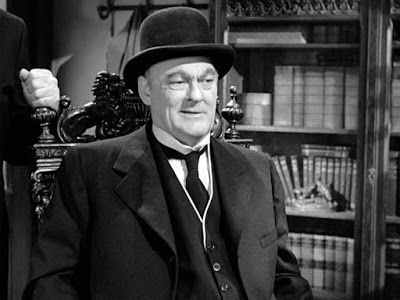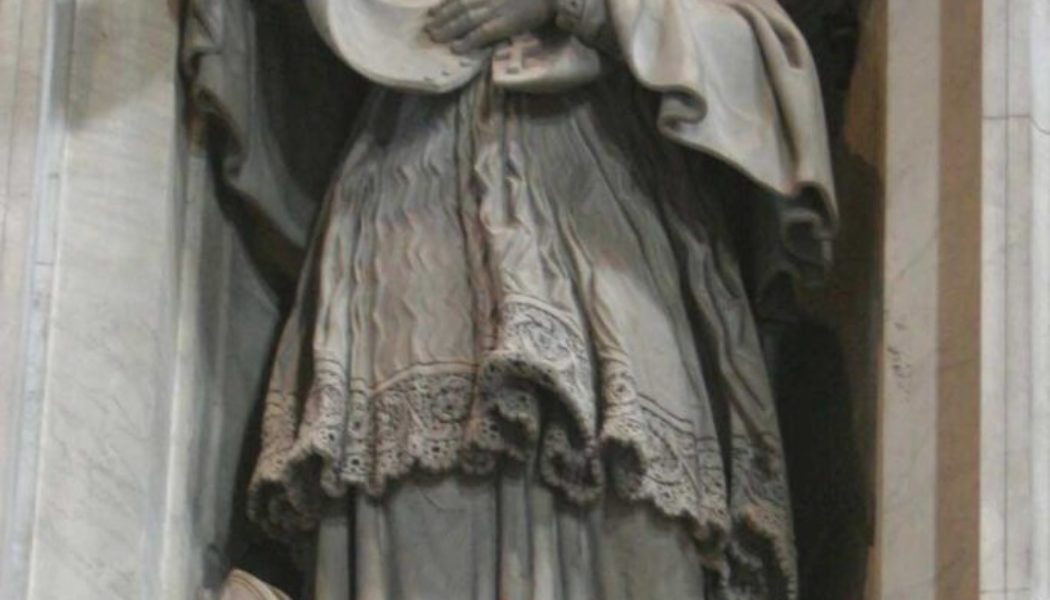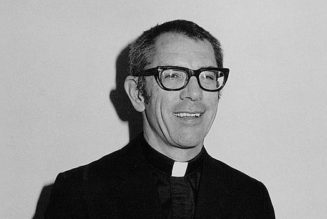One of the great Christmas traditions is Frank Capra’s masterful film It’s a Wonderful Life. James Stewart, that most American of actors, plays the lead of George Bailey, an Everyman, a small-town ordinary guy struggling against the deceit, selfishness, and cynicism of a power-broker named Potter. Yet, for all its Americana, I find It’s a Wonderful Life a profound reflection on the teachings of my favorite saint, Francis de Sales, a seventeenth-century French bishop.


De Sales lived from 1567 to 1622 and was the titular bishop of Geneva, Switzerland, but never lived there because it was controlled by the Calvinists. Instead, he lived in Annecy, a city in the Savoy area of southeastern France. Later named a Doctor of the Church, de Sales wrote prodigiously; his most famous work is An Introduction to the Devout Life, which was unique at the time because it was addressed to lay people struggling to live their spiritual lives in the midst of a secular world. It was the first book of its kind, and still one of the best. Its message, one that de Sales would echo in hundreds of letters of spiritual direction he wrote to lay people, was simple: serve God where you are and as you are. He had no illusions about the problems faced by ordinary people, and he knew that one of our biggest obstacles to happiness in this life and the next was our clinging to “If only …” It will be George Bailey’s struggle throughout the film.
George Bailey and Bedford Falls
It’s a Wonderful Life starts with George in his late thirties and, although a seemingly devoted husband and father, about to commit suicide. Heaven sends George an angel to help, but first gives him a review of George’s life; a life that is spectacularly, perhaps painfully, ordinary.
George grows up in Bedford Falls where his father runs the Building and Loan as an alternative to the bank run by the malevolent Mr. Potter. George respects his father and has affection for his neighbors, but the “smallness” of the town and his ordinary life oppresses him, and he wants nothing more than to escape. After high school, he works for his father to save money for a trip around the world, after which he plans to attend college and “get out of this crummy one-horse town.”


But it is not to be. His father dies and George forgoes his trip to save the Building and Loan from Potter’s takeover. Later, expecting his younger brother to take his place, he is tied down again when his brother marries and leaves Bedford Falls. George marries, but just as he is about to leave on his honeymoon, a run at the Building and Loan forces him to stay. The years go by and old friends, now “successful,” return to visit, their very presence reminding George of what he hasn’t achieved, or thinks he should have. During World War II, others go off to fight and are honored for it while George stays in Bedford Falls and conducts scrap drives.
At one point, George is given his chance for success when Potter offers him a job, playing on, yes, the lure of more money, but also on George’s desire for “big things”—a big house and trips to New York and Europe. Tempted at first, George then angrily refuses. But is he angry at Potter—or himself?


George Bailey is one of the most admirable and amiable characters in cinematic history, but never seems at peace with himself. He’s frustrated with his Uncle Billy, with Bedford Falls and its people, with what he has done (or not done), even with his wife and children. Most of all he is frustrated with himself.
Such a selfless man as George Bailey should not, we think, be discontent. But true selflessness means more than doing the right thing. It means forgetting yourself, your plans, your dreams, your ambitions, and at the same time accepting who you are and where God has put you and what He wants you to do. But by an insidious trick of the devil, this can turn our very virtues into occasions of sin. If we don’t truly learn to accept where God has put us and what God wants from us, then even when we do something good, there is a little voice in the back of our mind whispering, “Yes, that’s good. But you’re being cheated.”
If Only…
Two of the devil’s favorite words are behind George’s problem. They are, “If only.” George spends most of his life wanting to be somewhere other than where he is and someone other than who he is. And don’t we, too, have our “If only” moments? If only we had been born in a different place or a different time; if only we had a different family, school, or teachers; if only we had a different spouse, children, coworkers; if only we had done this or not done that. And we go on and on.
Americans are, I think, especially susceptible to this. Because we live in the land where the ordinary Joe—or George—can become extraordinary, we tend to think that unless we become extraordinary we have somehow “failed.” We are saturated with the extraordinary. Really, how many people do you know look like those on the covers of the magazines in the checkout aisle at the grocery store? How many do you know who live like the characters in a Netflix series? This can even creep into our spiritual lives (the devil is an equal opportunity tempter) when we read of the visions and locutions and extraordinary deeds of some of the saints and think that’s what holiness is all about.
St. Francis de Sales saw all this four hundred years ago. To read his writings is like having a kind doctor gently but firmly put a dislocated spiritual bone back into its socket. For example, one of his correspondents was Madame Brulart, the wife of a prominent politician; she was a woman who “thought big” and wanted “to do something.” In a letter, de Sales calmed her down and then said, in words we could meditate on for a lifetime:
Persevere in overcoming yourself in the little, everyday frustrations that bother you; let your best efforts be directed there. God wishes nothing else of you at present, so don’t waste your time doing anything else. Don’t sow your seeds in someone else’s garden; just cultivate your own as best you can. Don’t long to be other than what you are, but desire to be thoroughly what you are. Direct your thoughts at being very good at that and to bearing the crosses, little or great, that you will find there. Believe me, this is the most important and least understood point in the spiritual life. We all love what is according to our taste; few like what is according to their duty or to God’s liking. What is the use of building castles in Spain when we have to live in France? This is my old lesson, and you grasp it well; but tell me, my dear, whether you are putting it into practice? (emphasis mine)
When a doctor of the Church tells you that something is the most important point in the spiritual life, it is wise to pay attention.
In another letter to Brulart he writes:
I know very well that your goal is none other than the love of God, and you have to use means and practices to reach it. However, I say that you are attached tenaciously to those means which you like, and want to reduce everything to that. That is why you are upset when anything gets in your way or distracts you. The remedy would be to try to convince yourself—to fill your mind with this conviction—that God wants you to serve Him just as you are, both by practices that are suited to your state in life, and by the actions that go with it. Once you are convinced of this, you must bring yourself to a tender affection for your state in life and for everything about it out of love for Him who wills it so. You see, my dear, it’s not enough to give this a thought in passing; you must give it first place in your heart, recalling it often, thinking it over seriously, welcoming and enjoying the truth of it. Take my word for it, all that is contrary to this advice is nothing else but self-love.
Those words can be convicting, comforting, sobering, and inspiring all at the same time.
De Sales is not promoting a kind of “quietism” or stoicism. In fact, he is telling us to face life, but face real life, the life you have, not the life you think you should have had, or the life you think would be nice, “and face the crosses, little or great, that you will find there.”


In It’s a Wonderful Life, George’s great moments come when he does just that—forgets the life he wants for the life that is there in front of him. He forgoes his longed-for trip to Europe to lead the Building and Loan after his father dies. He does the same a few months later to prevent Potter’s takeover. He allows his brother Harry to leave Bedford Falls, thereby dooming himself to the Building and Loan. He admits and confesses his love for Mary Hatch knowing it will keep him in Bedford Falls. He uses his honeymoon money to help others, works himself to the bone, and forgoes a lucrative offer from Potter all so that the people of Bedford Falls can have decent houses to live in. It isn’t the greatness George wants, but it is the greatness God wants for him.
This is a difficult lesson to learn because it is counterintuitive to how we think of greatness. Do you honestly believe a person can be great and unnoticed? Do you honestly equate contentment with greatness? Do you honestly think you can be great where you are now, with no changes? This requires astounding—saintly—humility and trust. Alternatively, the lack of this trust is, in a sense, the original sin. Adam and Eve could not be content with who they were and what they had. And they had paradise! They thought they knew better, and ever since, we’ve thought we know better.
It’s a Wonderful Life was based on a short story called “The Greatest Gift.” When George realizes just what his life has meant, that indeed is a great gift, but it is one most of us won’t have this side of the grave. The greater, perhaps the greatest, gift is one that we all can have now. That is to accept who we are, what we are, where we are, and that God has put all these together for a reason. Accepting that gift will give us a wonderful life.
Recommended reading:
An Introduction to the Devout Life by St. Francis de Sales. There are numerous editions of this, but I would recommend this one published by TAN, translated and edited by John K. Ryan
St. Francis de Sales: Selected Letters, translated and edited by Elisabeth Stopp
Francis de Sales, Jane de Chantal: Letters of Spiritual Direction, in the Classics of Western Spirituality Series, edited by Wendy Wright and Joseph Powers








